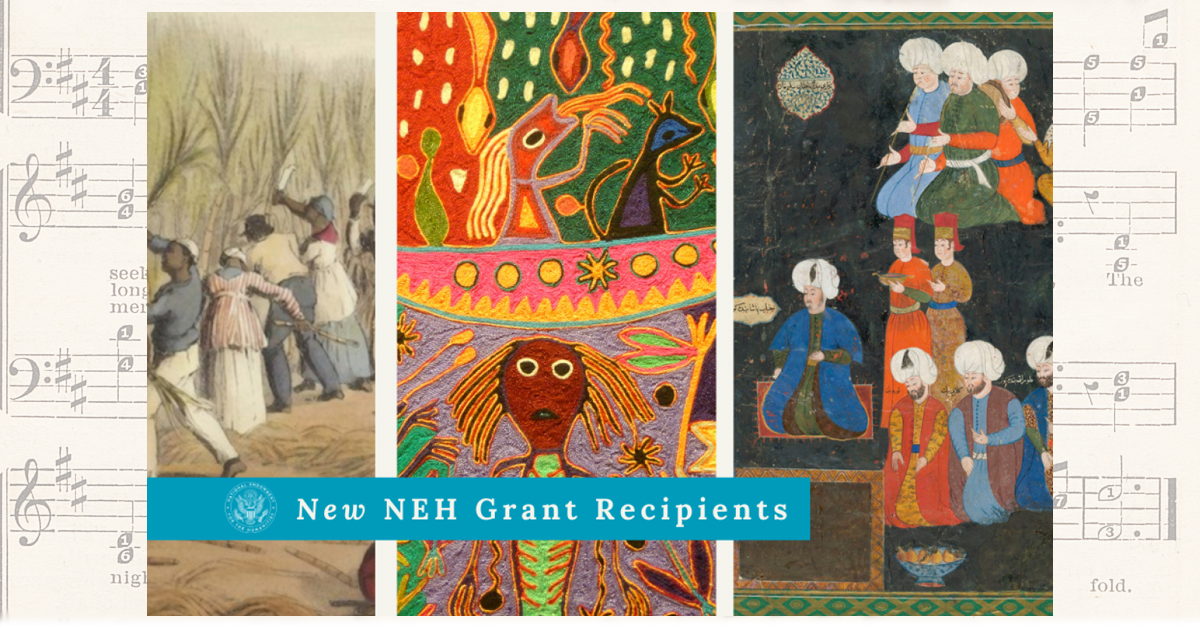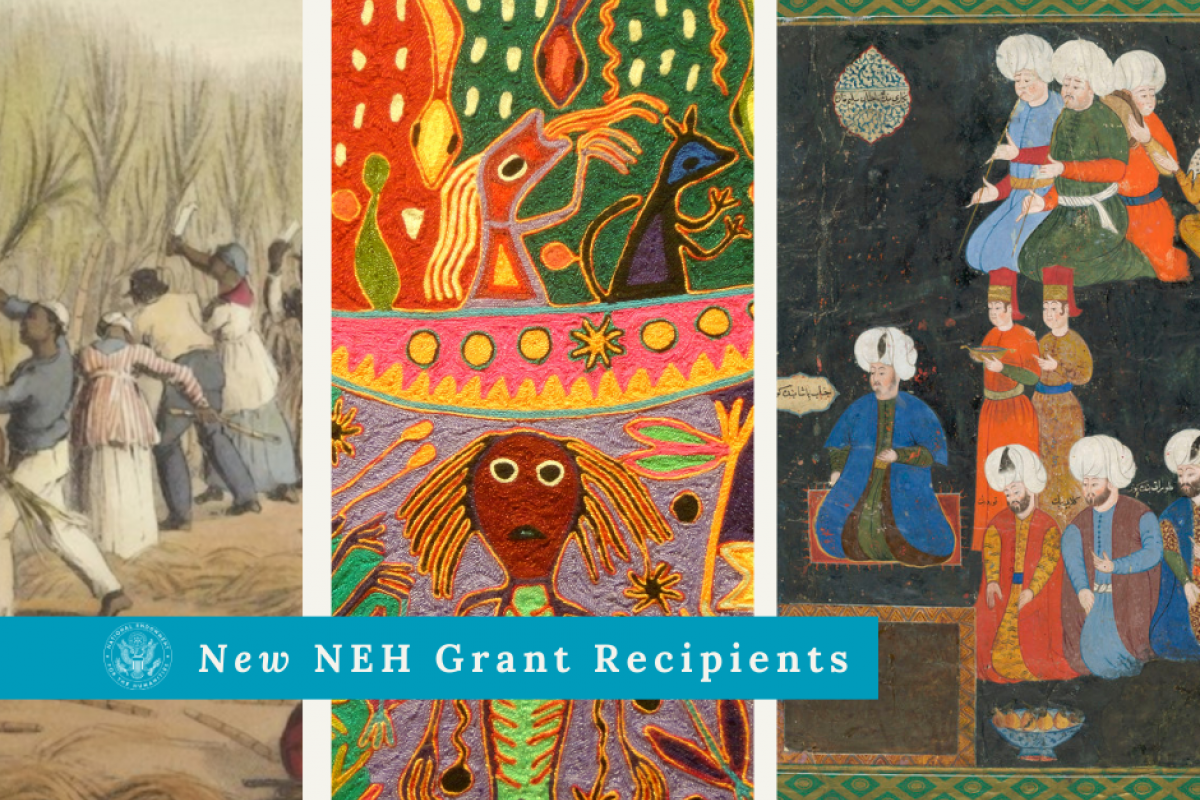Sounding Spirit receives $344,687 grant for sacred music digital library from the National Endowment for the Humanities
Sounding Spirit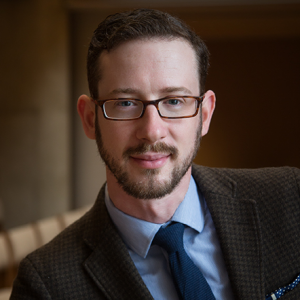 has received a third grant from the National Endowment for the Humanities (NEH) to continue the pioneering work of its research lab promoting collaborative engagement with southern sacred songbooks. This $344,687 grant from the NEH’s Humanities Collections and References Resources (HCRR) program builds on the success of a one-year HCRR-funded planning project—co-administered by Jesse P. Karlsberg (Sounding Spirit project director, technical lead, and editor-in-chief; ECDS senior digital scholarship strategist) and Meredith Doster (managing editor and project manager)—that produced a pilot digital library featuring twenty-two books from four partner archives. Karlsberg and Doster will lead a multi-institutional team anchored at the Emory Center for Digital Scholarship (ECDS) in a three-year project expanding the Sounding Spirit digital library to include 1,284 additional books of vernacular sacred music from the US South published between 1850 and 1925. The digital library will complement Sounding Spirit’s annotated facsimile editions of five influential books of sacred southern vernacular music. The scholarly editions series is co-published by the University of North Carolina Press and ECDS and made possible by an NEH Scholarly Editions and Translations grant received in 2018.
has received a third grant from the National Endowment for the Humanities (NEH) to continue the pioneering work of its research lab promoting collaborative engagement with southern sacred songbooks. This $344,687 grant from the NEH’s Humanities Collections and References Resources (HCRR) program builds on the success of a one-year HCRR-funded planning project—co-administered by Jesse P. Karlsberg (Sounding Spirit project director, technical lead, and editor-in-chief; ECDS senior digital scholarship strategist) and Meredith Doster (managing editor and project manager)—that produced a pilot digital library featuring twenty-two books from four partner archives. Karlsberg and Doster will lead a multi-institutional team anchored at the Emory Center for Digital Scholarship (ECDS) in a three-year project expanding the Sounding Spirit digital library to include 1,284 additional books of vernacular sacred music from the US South published between 1850 and 1925. The digital library will complement Sounding Spirit’s annotated facsimile editions of five influential books of sacred southern vernacular music. The scholarly editions series is co-published by the University of North Carolina Press and ECDS and made possible by an NEH Scholarly Editions and Translations grant received in 2018.
For Karlsberg, a scholar of American music and longtime practitioner of shape-note singing, one of the sacred music traditions featured in the digital library, this grant “represents the culmination of ten years of research uncovering the centrality of print culture to the practice of sacred music making in America.” Karlsberg describes the impact that Sounding Spirit is poised to achieve, thanks to continued NEH support:
Working at the intersection of digital humanities, music bibliography, and American studies, Sounding Spirit’s community-engaged scholarship is reframing the parameters of what we collect, digitize, and engage. Gospel, shape-note music, spirituals, and hymn singing were broadly popular practices that profoundly influenced the twentieth-century cultural landscape. Yet the foundational role of print culture in these genres has been neglected. The Sounding Spirit digital library will draw on this rich historical corpus to facilitate new teaching and research and to highlight relationships between race, place, religion, and culture central to national conversations. I am gratified that Sounding Spirit has received this tremendous support from the National Endowment for the Humanities and am excited to continue our work exploring the critical yet under-appreciated role sacred music books have played in American cultural history.
The four digital library archival partners will be joined by two new contributors, together holding an impressive range of southern sacred song:
- Emory University’s Pitts Theology Library and the Stuart A. Rose Manuscript, Archives, and Rare Book Library,
- The Center for Popular Music at Middle Tennessee State University,
- The John Jacob Niles Center for American Music and UK Libraries at the University of Kentucky,
- The Southern Baptist Theological Seminary Archives and Special Collections,
- The University of Michigan Library and William L. Clements Library at the University of Michigan, and
- The Department of Special Collections and University Archives and Helmerich Center for American Research at the Gilcrease Museum at the University of Tulsa.
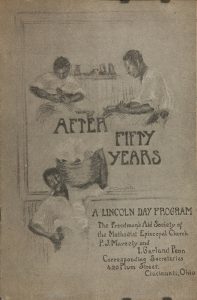
The expanded Sounding Spirit digital library will pair the rich holdings of these new and returning partners with metadata and descriptive entries that place each work in cultural context. The Sounding Spirit project team will collaborate with leading scholars and practitioners to organize all volumes into collections that highlight communities of use, places of origin, genres, and formats. The digital library will be made freely available to the public on a site built using the ECDS-developed, state-of-the-art Readux platform. Building on workflows developed and vetted during the yearlong planning process, contributing archives will digitize selected works at high levels of quality and consistency. Sounding Spirit’s project team will conduct optical character recognition (OCR) and music information retrieval (MIR) on digitized volumes, collecting information about the corpus’ musical and textual contents. Each book will also be accompanied by standard metadata to facilitate interoperability with the Digital Public Library of America (DPLA), increasing the works’ discoverability. These fields will be supplemented by additional descriptive metadata that incorporate and expand on research conducted to produce the “Checklist of Southern Sacred Music Imprints, 1850–1925.” Compiled by music bibliographer Erin Fulton with Karlsberg, this checklist was a major deliverable of the pilot grant and serves as a blueprint for the library’s expansion.
In addition to making this corpus of sacred southern song accessible, the NEH grant will support the research and writing of 425 volume summaries, 100 collection descriptions, and 15 bibliographic essays that will orient readers to the works and their makers, contributing to both the use and understanding of these materials. These scholarly entries will connect volumes and collections to the library’s foci of race, place, religion, culture, and genre, ensuring that this large-scale digitization project produces an archive intentionally calibrated to questions and considerations of equity across several lines of difference. Doster describes the research and writing campaign that will invite scholars, practitioners, and students to join in the work of framing the library’s materials:
The Sounding Spirit digital library is by design a collaborative undertaking. During the pilot project, our team worked with advisory board members and partner institutions on curation priorities designed to make the digital library reflective of and accessible to the many diverse communities whose contributions to American sacred song remain under-appreciated. Thanks to this new grant, I will be extending invitations to scholars, students, and practitioners of the musics included in the library to contribute entries framing these important works. My hope is that the Sounding Spirit project continues to model the kind of collaboration that understands relationship – between singers and songs, partners and processes, collections and collective knowledge – as both best practice and intervention in its own right.

The Sounding Spirit digital library will ultimately expand the canon of American sacred music by including songbooks from a wide range of underrepresented populations not yet fully acknowledged as important contributors to American history. These music books document little-known publishing practices, such as the hymnals and missionizing texts of regional denominations; the words-only hymnals made for displaced Creek, Cherokee, and Choctaw populations; the compositions of Black Pentecostal and Holiness Christians; and the music publishing of Portugese, Czech, Dutch, and German immigrant populations.
The sacred songbooks included in the digital library refract historical events such as the Civil War, the rise of the New South, and the early waves of the Great Migration through diverse perspectives situated at the margins of the then-emerging industrial book trade. These perspectives include diverse voices and communities spanning an expansive definition of the US South and its diasporas, as well as a wide range of denominational affiliations. Individually and collectively, these works have the potential to change the way researchers, teachers, and members of the public access and understand music’s relationship to American history and culture, as Ian Quinn, Professor and Chair of the Yale University Department of Music, articulates:
In a time when it is urgent that music educators move away from the view that classical music, or music of White communities generally, is all that matters, it is invaluable to be able to introduce students to a common set of musical practices and materials running through Black, Indigenous, and other communities of color. It is not difficult to imagine using Sounding Spirit to model a new approach to teaching the elements of music that could easily be adapted to a wide range of pedagogical situations.
Kay-Michael Würzner, advisory board member from the Saxon State and University Library in Dresden, notes that the Sounding Spirit digital library has research potential far beyond American music and related fields, including its potential to advance optical music recognition:
The project’s materials are both compelling and challenging for automatic optical layout, music and character recognition. Sounding Spirit therefore offers great opportunities for researchers in the fields of computer science and natural language processing to improve existing methods and develop new approaches. Insights gained over the next three years will help this project improve and enrich its datasets. In generating and employing high-quality digital materials at this scale, Sounding Spirit will also impact the fields of digital scholarship and digital humanities. The project’s open design, as well as its networking activities, greatly facilitate interdisciplinary collaboration that supports shared outcomes.
In the funding announcement, NEH acting chairman Adam Wolfson described grant recipients as embodying “excellence, intellectual rigor, and a dedication to the pursuit of knowledge, even as our nation and the humanities community continue to face the challenges of the pandemic.” Advisory board member and Assistant Professor of African-American Religious History in the Department of Religious Studies at Vanderbilt University, Alexis Wells-Oghoghomeh, likewise notes the importance of projects like Sounding Spirit in this season of pronounced reckoning with foundations of both countries and collections:
As the United States wrestles with the complex cultural, social, and political legacies of our nation’s origins and contemplates how we work towards “a more perfect union,” understanding the biases, hopes, and idiosyncrasies that shaped Americans and concepts of America is more critical than ever. The sacred sounds of persons striving towards varied ideals across historical time offer a window into the personal and collective commitments that have shaped and continue to shape how cultural boundaries are drawn and claimed. The story of religion in America is primarily the story of the everyday. Collecting and digitizing the religious records of everyday people bequeaths educators and students a trove of knowledge through which to critique and understand our history and to innovate a way forward.
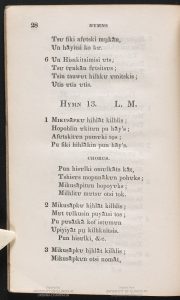
Karlsberg will collaborate with Doster in advancing this initiative. ECDS Digital Text Specialist Sarah Palmer, ECDS Lead Software Engineer Jay Varner, Pitts Theology Library Project Digital Asset Librarian Ann McShane, and music bibliographer Erin Fulton will contribute to Emory’s efforts, joined on the project staff by digitization supervisor Sarah Dorpinghaus of the University of Kentucky. A new slate of advisory board members will join digitization specialists, archivists, and content experts from each of the six partner archives to round out the project team. The expanded project team is slated to begin its work in June 2021, building on a strong foundation thanks to ongoing support from ECDS alongside NEH funding. “The expansion of the Sounding Spirit Digital Library,” says Allen Tullos, Professor of History and co-director of ECDS, “is a major collaborative initiative for aggregating, enhancing, and publishing these rare historical materials. This curated online collection with its summaries, commentaries, and ease of searchability promises to provide scholars, musicians, and singers unprecedented access to a world of marvelous, vernacular tunebooks.”
Sounding Spirit looks forward to collaborating with all partners on the expansion of this digital library in the service of transformative public-facing humanities scholarship. At the conclusion of the grant period, Sounding Spirit plans to stage a series of physical exhibitions showcasing the library at multiple partner institutions. A planned 2024 symposium at Emory University will feature performances and interactive singing sessions that encourage scholarship and public engagement with the digital library’s works.
Ready? Set? Digitize!
For more information about the Sounding Spirit research lab, please visit soundingspirit.org or contact managing editor and project manager Meredith Doster at mdoster [at] emory [dot] edu.
